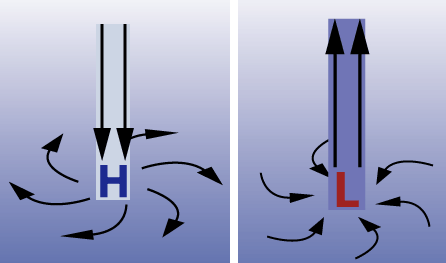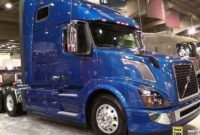Low Cab Forward Trucks For Sale: Your Comprehensive Guide to Smart Commercial Vehicle Investment pickup.truckstrend.com
In the bustling world of urban logistics, last-mile delivery, and specialized service operations, efficiency, maneuverability, and visibility are paramount. This is where Low Cab Forward (LCF) trucks shine, emerging as indispensable workhorses for countless businesses. When you see a compact, agile truck navigating tight city streets, making deliveries, or serving as a mobile workshop, chances are you’re looking at an LCF. This comprehensive guide will delve into everything you need to know about "Low Cab Forward Trucks For Sale," helping you make an informed decision for your business needs.
What Are Low Cab Forward Trucks? Defining the Urban Workhorse
Low Cab Forward Trucks For Sale: Your Comprehensive Guide to Smart Commercial Vehicle Investment
Low Cab Forward trucks, often referred to as Cab-Over-Engine (COE) trucks, are distinguished by their unique design where the cab sits directly over the engine. Unlike conventional trucks with a protruding hood, the LCF design positions the driver closer to the front of the vehicle. This architectural choice is not merely aesthetic; it’s a fundamental design decision that unlocks a host of practical benefits crucial for specific commercial applications.
Key characteristics of LCF trucks include:
- Cab-Over-Engine Design: The defining feature, allowing for a shorter overall length relative to the cargo area.
- Exceptional Forward Visibility: With no long hood obstructing the view, drivers have a commanding perspective of the road ahead and immediate surroundings.
- Tight Turning Radius: Their compact wheelbase and steering geometry enable unparalleled maneuverability in congested areas.
- Versatile Chassis: Designed to accommodate a wide array of upfits, from dry freight boxes and refrigerated units to dump bodies, stake beds, and service utility bodies.
- Ease of Maintenance Access: The cab typically tilts forward, providing straightforward access to the engine and transmission for servicing.

Why Choose a Low Cab Forward Truck? Benefits Galore
The advantages of LCF trucks are directly tied to their unique design, making them a superior choice for businesses operating in specific environments.
Superior Maneuverability in Tight Spaces
This is arguably the most significant benefit. The cab-over design allows for a shorter overall vehicle length compared to a conventional truck with the same wheelbase. This, combined with an optimized steering angle, results in a significantly tighter turning radius. For drivers navigating narrow city alleys, crowded loading docks, or busy construction sites, an LCF truck can make turns and parking maneuvers that would be impossible for a conventional truck.
Excellent Visibility
With the driver positioned directly above the front axle and no hood to peer over, LCF trucks offer an expansive field of vision. This enhanced visibility is crucial for safety, especially in urban environments where pedestrians, cyclists, and other vehicles are abundant. Drivers can more easily spot obstacles, judge distances, and navigate complex traffic situations.
Optimized Cargo Space
By eliminating the traditional engine compartment in front of the cab, LCF trucks maximize the available chassis length for cargo. This means businesses can carry more payload on a shorter overall vehicle, which can be advantageous for meeting length restrictions or simply maximizing efficiency per trip.
Ease of Maintenance
Most LCF trucks feature a tilting cab that provides full, unimpeded access to the engine, transmission, and other critical components. This design significantly simplifies and speeds up routine maintenance checks and major repairs, potentially reducing downtime and labor costs.
Fuel Efficiency
While not a universal rule, many LCF models are designed to be lighter than their conventional counterparts, especially in the light and medium-duty segments. This lighter curb weight, coupled with efficient engine options (often diesel, but gas options are available), can contribute to better fuel economy, translating to lower operating costs over the life of the vehicle.
Versatility for Various Applications
The robust and adaptable chassis of LCF trucks makes them incredibly versatile. They can be customized with a wide range of body types to suit almost any commercial need, making them a true multi-purpose asset.
Common Applications and Industries
LCF trucks are the backbone of numerous industries due to their adaptability and efficiency:
- Last-Mile Delivery: Parcel services, food delivery, and beverage distributors heavily rely on LCF trucks for their ability to navigate residential streets and tight delivery zones.
- Landscaping & Lawn Care: Equipped with dump bodies, toolboxes, or open stake beds, they transport equipment, mulch, and debris.
- Plumbing, HVAC, Electrical Services: Service bodies provide organized storage for tools, parts, and equipment, allowing technicians to carry everything they need to a job site.
- Waste Management: Smaller refuse trucks and recycling vehicles often utilize an LCF chassis for maneuverability in neighborhoods.
- Towing & Recovery: Rollback tow trucks benefit from the LCF design’s compact footprint and visibility for urban recovery operations.
- Refrigerated Transport: Ideal for perishable goods delivery, from catering to pharmaceuticals, requiring precise temperature control.
- Construction & Trades: Stake beds, flatbeds, and small dump trucks for material transport on job sites.
Key Considerations When Buying a Low Cab Forward Truck
Purchasing an LCF truck is a significant investment. Here are crucial factors to consider:
- New vs. Used:
- New: Offers the latest technology, warranty, and customization options. Higher upfront cost.
- Used: More budget-friendly, quicker depreciation already occurred. Requires thorough inspection and maintenance history review.
- Gross Vehicle Weight Rating (GVWR) & Payload Capacity: This is critical. GVWR determines the maximum operating weight of the truck, including the vehicle itself, its occupants, fuel, and cargo. Match the GVWR to your heaviest anticipated loads to ensure compliance and safety.
- Engine Type (Diesel vs. Gas):
- Diesel: Typically more fuel-efficient, higher torque for heavy loads, longer lifespan, but higher initial cost and maintenance. Ideal for high-mileage operations.
- Gas: Lower initial cost, often quieter, easier to maintain for some mechanics, better for stop-and-go city driving.
- Transmission: Automatic transmissions are common for ease of driving in traffic, but manual options might be available for specific preferences or applications.
- Cab Features & Comfort: Consider driver comfort for long shifts. Look for air conditioning, comfortable seating, ample storage, and ergonomic controls.
- Body Type/Upfit Needs: What specific job will the truck perform? This dictates the type of body (box, flatbed, dump, service body, reefer, etc.) you’ll need. Ensure the chassis can support the desired upfit.
- Maintenance Records (for Used Trucks): A detailed service history is invaluable for used trucks, indicating how well the vehicle has been maintained.
- Dealer Reputation & Support: Choose a reputable dealer who offers good after-sales service, parts availability, and technical support.
- Budget & Financing: Determine your budget and explore financing options. Factor in not just the purchase price but also insurance, maintenance, fuel, and potential upfitting costs.
Popular Low Cab Forward Truck Brands and Models
The LCF market is dominated by a few key players known for their reliability and diverse offerings:
- Isuzu N-Series (NPR, NQR, NRR): Arguably the most recognizable LCF brand in North America, known for its durability, fuel efficiency, and wide range of GVWRs.
- Hino (195, 238, 268): A Toyota subsidiary, Hino trucks are praised for their robust build, strong engines, and comfortable cabs.
- Mitsubishi Fuso Canter: Another long-standing player, Fuso offers compact yet capable LCF trucks with a focus on efficiency and maneuverability.
- Chevrolet Low Cab Forward / GMC Low Cab Forward: These are rebadged Isuzu models, offering the same proven platform with familiar domestic branding and dealer networks.
Tips for Finding the Best Deal
Finding the right LCF truck at the right price requires diligence:
- Online Marketplaces: Websites like Commercial Truck Trader, TruckPaper, and dealer websites are excellent starting points for browsing new and used inventory.
- Authorized Dealerships: Visit local dealerships specializing in commercial trucks. They offer new models, certified pre-owned options, financing, and service.
- Auctions: Commercial vehicle auctions can offer significant savings, but they require expertise to assess vehicle condition and carry higher risk.
- Pre-Purchase Inspection: For used trucks, always arrange for an independent mechanic to perform a thorough pre-purchase inspection. This can uncover hidden issues.
- Test Drive: Always test drive the truck, ideally with some weight in the back to simulate real-world conditions. Check brakes, steering, acceleration, and transmission shifting.
- Negotiate: Don’t be afraid to negotiate on price, especially for used vehicles. Research market values beforehand.
Low Cab Forward Trucks For Sale: Estimated Price Ranges
Prices for Low Cab Forward trucks vary significantly based on brand, model, year, mileage, condition, GVWR, engine type, and the specific upfit or body installed. The table below provides estimated price ranges for common configurations. These are general guidelines, and actual prices may differ.
| Category | GVWR Range (lbs) | Typical Body Type | Condition | Estimated Price Range (USD) |
|---|---|---|---|---|
| New Light-Duty LCF | 12,000 – 14,500 | Box Truck (12-16 ft), Flatbed | New | $55,000 – $85,000 |
| New Medium-Duty LCF | 16,000 – 19,500 | Box Truck (16-20 ft), Reefer | New | $70,000 – $110,000 |
| New Heavy-Duty LCF | 20,000 – 26,000 | Box Truck (20-24 ft), Dump | New | $85,000 – $130,000+ |
| Used Light-Duty LCF | 12,000 – 14,500 | Box Truck, Flatbed | Used (3-7 yrs old, 50k-150k miles) | $25,000 – $50,000 |
| Used Medium-Duty LCF | 16,000 – 19,500 | Box Truck, Reefer, Service | Used (3-7 yrs old, 75k-200k miles) | $35,000 – $70,000 |
| Used Heavy-Duty LCF | 20,000 – 26,000 | Box Truck, Dump, Rollback | Used (5-10 yrs old, 100k-300k miles) | $45,000 – $90,000+ |
Note: These prices do not include taxes, registration, or specific custom upfitting costs which can add significantly to the total investment. Prices are subject to market fluctuations and regional variations.
Frequently Asked Questions (FAQ) about Low Cab Forward Trucks
Q1: What is the main difference between an LCF truck and a conventional truck?
A1: The primary difference is the cab’s position. In LCF trucks, the cab sits directly over the engine, allowing for a shorter overall length, better visibility, and a tighter turning radius. Conventional trucks have a traditional hood extending in front of the cab, housing the engine.
Q2: Are LCF trucks good for long-haul transportation?
A2: Generally, no. LCF trucks are optimized for urban and suburban environments due to their maneuverability and visibility. For long-haul operations, conventional trucks typically offer better aerodynamic efficiency, more comfortable cabs for extended periods, and often larger fuel tanks.
Q3: What is GVWR and why is it important when buying an LCF truck?
A3: GVWR stands for Gross Vehicle Weight Rating. It’s the maximum operating weight of the truck as determined by the manufacturer, including the chassis, cab, engine, fuel, passengers, and cargo. It’s crucial because exceeding the GVWR is unsafe, illegal, and can void warranties or lead to mechanical failures. Always ensure the truck’s GVWR matches your intended payload.
Q4: Are parts for LCF trucks hard to find or more expensive?
A4: For popular brands like Isuzu, Hino, and Fuso, parts are generally readily available through their respective dealer networks and authorized parts suppliers. Some specialized components might be more specific than generic truck parts, but overall, availability is good. Pricing is comparable to parts for other commercial vehicles.
Q5: What is the typical lifespan of an LCF truck?
A5: With proper maintenance, LCF trucks are built to be durable. Many can easily last 250,000 to 400,000 miles or more, especially diesel models, before requiring major overhauls. Their lifespan depends heavily on regular servicing, driving conditions, and load management.
Q6: Can I drive an LCF truck with a regular driver’s license?
A6: This depends on the truck’s GVWR. In most of North America, trucks with a GVWR of 26,000 lbs or less (which includes many light and medium-duty LCFs) can be driven with a standard Class D (non-commercial) driver’s license. Trucks exceeding 26,000 lbs GVWR, or those designed to carry hazardous materials or a certain number of passengers, typically require a Commercial Driver’s License (CDL). Always check local regulations.
Conclusion
Low Cab Forward trucks are a highly specialized yet incredibly versatile segment of the commercial vehicle market. Their unique design offers unparalleled advantages in urban settings, making them the go-to choice for a vast array of businesses prioritizing maneuverability, visibility, and efficient cargo space. Whether you’re a small business owner looking to optimize your delivery routes or a large corporation expanding your fleet, understanding the benefits, considerations, and options available in "Low Cab Forward Trucks For Sale" is the first step toward a smart and impactful investment. By carefully assessing your needs, researching models, and leveraging practical buying tips, you can secure an LCF truck that becomes a true asset to your operations, driving efficiency and profitability for years to come.


